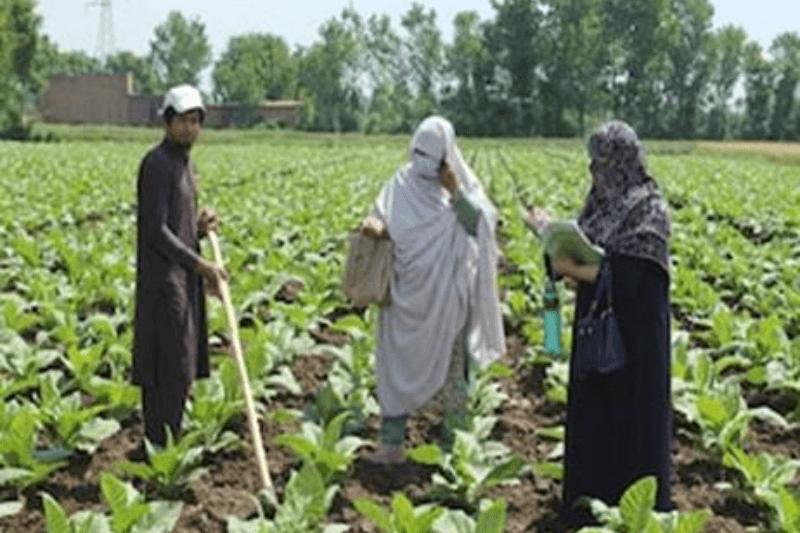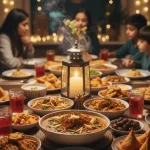
women breaking (C)The Nation,barriers in pakistans farming communities
There is a sort of ‘Pashtun belt’ in the northwest of Pakistan. Tobacco grows there. The people residing there, the Pashtuns, do have rich traditions. However, these keep women at home. Years back, the ladies from these farming families had been completely cut off from the outer world.
Though kept at home, the role of these women in running the farms is very significant. Sorting and preparing tobacco are tasks of prime importance and are undertaken by these women. Philip Morris Pakistan Limited realized their worth to the entire process and thus wanted to reach them and do something for them. A program for support and empowerment was thus designed for them.
The ‘Social Mobilisers’ Program
In 2021, PMPKL established a new programme called ‘Access to Families’. The company recruited women to serve as ‘social mobilisers’. These women have a special task: they visit small farms that supply their produce to PMPKL. But instead of speaking with the male farmers, they speak with the wives of these farmers and other women labouring on the farm.
Before this program, only men from PMPKL used to visit farms. They can’t discuss problems with the women because of cultural rules. By this, they were losing much information about how the farms really work. This new social mobilizers can enter homes and speak directly to the women there.
What Do Social Mobilisers Do?
The social mobilizers will take up the following critical activities:
Teach women about the PMPKL ALP code. It is a code of conduct similar to a set of rules related to good labor practice in treating workers with equity.
Check for the availability of clean drinking water in farms, proper toilets and places for washing hands.
Ensure that children are not working in the farms.
– They talk with all the women that work on the farm to make everything fair.
– They record what they see, and see if things are getting better over time.
One of the social mobilizers, Ammara, explained that they have 13 people involved in the program. They go to farms at different stages of tobacco growing. They show families how to make their work safe and help women know their worth on a farm.
Breaking Cultural Barriers
This is part of Pakistan where scarcely any women work outside their homes; when they do, they usually are totally covered up. This social mobilizers’ program is breaking these old rules. It is giving women the chance of working and making real changes in their community.
According to Syed Muhammad Suleman Gul, who runs the program in Pakistan for PMI, this project is revolutionary. It’s allowing women to work outside their homes and make a difference in the world.
Success So Far
The program has already achieved much, including:
* More than 3,000 farmers were reached. This means all of the farmers in PMPKL’s network in the area.
* Many families have been empowered with good farming practices and how to deal fairly with workers.
* They have been able to collect valuable data related to how farms work and the women’s contribution to farms.
Plans for the Future
PMPKL, however isn’t stopping here. They want to grow the program even more. By the end of 2025, they hope to have 15 social mobilizers working in the area. Their big goal: all farmers know about and follow the ALP Code.
Recognising Women’s Work
One of the major things that this program has been able to do is bring women’s work to the limelight. Indeed, for quite a long time, no one noticed or appreciated the hard work the women were doing on farms. Now, they realize that women do just as much important work as the men on these farms.
Women have equal responsibility on farms they visited. Indeed, he argues, “It is important to highlight the principal role that women play in tobacco production.”.
It means much more than just farming. It’s a change in the mindset, an offer to women. Uplifting women in their work, PMPKL comes to make a positive change in farming communities. This is one small step toward improving equality and working conditions for all people.



